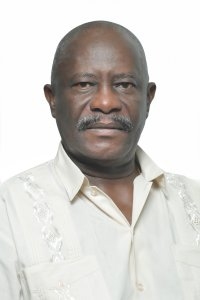Appeal Court fixes Jan. 22 to decide on whether Felix, Scott could sit as Technocrat Ministers
It is public knowledge that a court action has been filed by the People’s Progressive Party (PPP) to block Minister of Citizenship, Winston Felix and Minister within the Ministry of Social Protection, Keith Scott from sitting in the National Assembly as Technocrat Ministers.

In fact, government had filed an appeal against a ruling handed down in February 2016, by the late Chief Justice Ian Chang, who ruled that the two Ministers cannot continue to sit in the National Assembly as non-elected members, as they were both elected as part of A Partnership for National Unity (APNU) + Alliance for Change (AFC) coalition’s list of national candidates.
Following lengthy arguments proffered to the Court of Appeal by Solicitor General, Nigel Hawke and Former Attorney General Anil Nandlall on behalf of the PPP, the court yesterday announced that it will rule in the matter on Wednesday, January 22, 2020.
The appeal is being heard at the bench of Justices of Appeal Rishi Persaud and Dawn Gregory and High Court Judge Franklyn Holder. In his submissions to the court, Nandlall is asking that the appeal be dismissed with costs.
According to Nandlall, he is not challenging the qualification of any person to be elected as a member of the National Assembly. He even conceded that Ministers Scott and Felix are both qualified to be elected members.
His issue, however, is that they were not extracted from the list upon which they were elected. Nandlall submitted that the Ministers were elected as members of the National Assembly pursuant to paragraph Two of Article 60 or Article 160 (2) of the Constitution, as defined by Article 232 of the Constitution.
He submitted, “The challenge is solely directed to the President’s exercise of his powers to appoint Ministers, and having regard to the relevant provisions of the Constitution, the challenge is that Messrs.
Felix and Scott are not qualified to be appointed Ministers under those provisions on the ground that they are elected members of the National Assembly and only non-elected members of the National Assembly can be appointed to those positions [as Technocrat Ministers].”
It is Nandlall’s contention that Ministers Felix and Scott cannot become Technocrat Ministers under Articles 103(3) and 105 of the Constitution. This is so, Nandlall says, because Technocrat Ministers do not have a vote, since they were not elected by the people.
In short, once elected by the people the Constitution does not permit such a person to sit in the National Assembly without being able to vote; it is only those persons who are not on a list, and therefore did not face the electorate, who can sit in the National Assembly without the right to vote, Nandlall argues.
By Official Gazette publication, dated June 05, 2015, the Guyana Elections Commission, among other things declared the names of the persons who, as a result of the General and Regional Elections, were extracted to become members of the National Assembly.
Nandlall noted that it is common knowledge that these Members of the National Assembly are elected members and have a right to vote.
In closing, he urged the court to deliver its ruling within a reasonable time, as this case raises constitutional issues of some importance. He said, “More likely than not, this issue will arise again when Ministers are to be appointed after the March 2020 Elections.
It will therefore be of great assistance if a ruling can be given earliest by this Court, so that, if an Appeal is to be filed to the Caribbean Court of Justice, every effort can be made to have the hearing and determination of the same, expedited and concluded before March 2020.”
Government has always insisted that the ruling was something it cannot accept, as it is of the view that the ministers were properly appointed. In an appeal against the ruling, Government contended that Justice Chang’s ruling was bad in law and a breach of the principles of natural justice.
Contended that the ruling cannot be supported in law, Government has argued that Justice Chang “fell into grave error of law and misdirected himself in law, when he found that persons who are on the successful list of candidates are elected and therefore cannot qualify under Article 105 of the Constitution of Guyana to be ‘non-elected’ members of parliament and who have not been chosen or selected from the list of candidates to be Members of Parliament are excluded from being selected by the President as persons who are qualified to be elected as members of the National Assembly.”
In fact, Attorney General Basil Williams has argued that Chang also misdirected himself in law when he, “Failed to take into account that Article 163 (4) (a) of the Constitution of Guyana empowered Parliament to make provisions with respect to the circumstances and manner in which and the conditions upon which proceedings for the determination of any question under this article may be instituted in the High Court which Parliament did by enacting the National Assembly (Validity of Elections) Act, Cap. 1:04.”
One ground on which the appeal was filed is that at the time of delivering the ruling, Chang, who was the outgoing Chief Justice, was functus officio, which is used especially to define an officer who is no longer in office or of an instrument that has fulfilled its purpose.






















